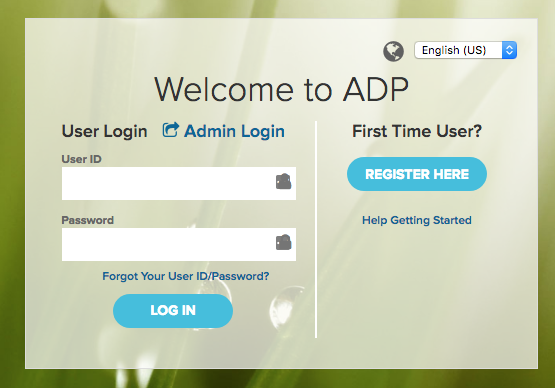
A generalist is responsible for a variety of HR tasks, balancing the needs of a corporation with the needs of individual employees. They must be current on all HR regulations. But, this role does not come without its challenges. We will be looking at the essential aspects of the job and the requirements for anyone interested in this career. We will also address education and salary requirements. Finally, we'll offer career path options for those who want to get into this field.
Job description
The work day of an HR Generalist may differ from industry to industry. It will also depend on the time of year and the location. Your typical day will begin with a cup of coffee, and then you will start your daily to-do list. You might be required to coordinate employee benefits changes, attend meetings or write documents. You may also be responsible for employee orientation, and you will need to answer any questions or concerns regarding the company's human resources policies.
Other duties of a Generalist include managing performance appraisals, which are recurring events where the HR professional sits down with the manager to evaluate an employee's performance. This is a shared responsibility for HR and the company. These evaluations will influence many key decisions about employees' futures. Although specialists are available for larger companies, generalists in HR should have a good understanding of the business functions that manage performance appraisals.

Education requirements
The education requirements for generalist HR positions may vary depending upon the company and industry. Although a high degree of education may be required, employers prefer to see candidates with work experience. A variety of fields offer transferable skills, so candidates need to be aware of this in addition to their HR experience. For example, people with a background in marketing, accounting, finance, or law may find it helpful to earn an MBA or a Master's degree in human resources.
Analysts in Human Resources are expected to understand key HR metrics and be analytical. They might need to train others in new systems. They should be proficient in digital tools and technologies. This includes both pre-assessment and recruitment technologies. They must also be proficient in online collaboration platforms and communication. This will allow them be effective advisors to their customers. Additionally, HR Generalists must be capable of handling confidential information.
Salary
The salary of a generalist in Human Resources varies depending upon where you are located and the industry. These professionals manage the day to day operations of a human resource office. They supervise employee evaluations as well as develop and implement HR policies. They should also be multitaskers, able to manage multiple projects at the same time. They may also be responsible for recruiting, firing, or maintaining organizational activities. This makes them vital to all businesses, small and large.
A Bachelor's degree in human resource management or another related field is required for HR generalists. They also need some experience. Many generalists also complete internships, which give them a feel for the job and the duties. The salary for HR generalists varies depending on the industry and the responsibility. A bachelor's degree is more lucrative than someone with more experience. Generalists in HR need to have at minimum two years' experience to get a good wage.

Career path
As a generalist in human resource (HR), you can get more experience. A generalist in HR allows you to take on a wider range of responsibilities and is more flexible than being a specialist. You can work in many HR areas, but generalists have the potential to move up to a higher-ranking position, such a human resources director. A generalist in HR requires you to be organised and multi-tasking if you want to succeed.
A generalist role in HR is a great choice for someone who is interested in the field. You will be in touch with all employees and exposed to many tasks as a generalist. However, larger organizations may need a team of specialists to address certain issues and provide more personalized attention to employees. You will most likely be working in an office environment. However, generalist positions may allow you to travel and enjoy the lifestyle of the jet set. It's likely that you will spend much of your time traveling to campus and job fairs, looking for candidates.
FAQ
Why is it important for companies to use project management techniques?
Project management techniques ensure that projects run smoothly while meeting deadlines.
This is because many businesses depend heavily upon project work to produce products and services.
These projects must be managed efficiently and effectively by companies.
Companies can lose time, money, and reputation if they don't have a good project management system.
How can we create a successful company culture?
A successful company culture is one that makes people feel valued and respected.
It's founded on three principal principles:
-
Everyone has something to contribute
-
People are treated fairly
-
Individuals and groups can have mutual respect
These values are reflected by the way people behave. They will treat others with respect and kindness.
They will respect other people's opinions.
These people will inspire others to share thoughts and feelings.
Company culture also encourages open communication, collaboration, and cooperation.
People are free to speak out without fear of reprisal.
They understand that errors will be tolerated as long they are corrected honestly.
Finally, the company culture encourages honesty as well as integrity.
Everyone is aware that truth must be told.
Everyone knows that there are rules and regulations that apply to them.
And no one expects special treatment or favors.
What are management principles?
Management Concepts are the principles and practices managers use to manage people and resources. They cover topics such as job descriptions and performance evaluations, human resource policies, training programs, employee motivation, compens systems, organizational structure, among others.
Statistics
- Your choice in Step 5 may very likely be the same or similar to the alternative you placed at the top of your list at the end of Step 4. (umassd.edu)
- As of 2020, personal bankers or tellers make an average of $32,620 per year, according to the BLS. (wgu.edu)
- Our program is 100% engineered for your success. (online.uc.edu)
- UpCounsel accepts only the top 5 percent of lawyers on its site. (upcounsel.com)
- Hire the top business lawyers and save up to 60% on legal fees (upcounsel.com)
External Links
How To
How can you apply 5S to your office?
The first step to making your workplace more efficient is to organize everything properly. A clean desk, a neat room, and a well-organized space are all key factors in ensuring everyone is productive. The five S’s (Sort. Shine. Sweep. Separate. and Store) all work together to ensure that every inch is utilized efficiently and effectively. This session will go over each of these steps and show how they can be used in any setting.
-
Sort. You can get rid of all papers and clutter, so you don’t waste time looking for what you need. You need to put your things where you use them the most. It is a good idea to keep things near where you are most likely to refer to it. Also, consider whether you really need it. If it isn't useful, get rid!
-
Shine.Keep your belongings neat and orderly so that you spend less time cleaning up after yourself. Do not keep anything that could possibly cause damage or injury to others. You might have many pens and need to put them away. It might mean investing in a pen holder, which is a great investment because you won't lose pens anymore.
-
Sweep. Keep surfaces clean to avoid dirt building up on furniture or other items. A dusting machine is a great investment to keep your surfaces clean. To keep your workspace tidy, you could even designate a particular area for dusting and cleaning.
-
Separate. Separate your trash into multiple bins to save time when you have to dispose of it. To make it easier to throw away your trash without having to look for it, trash cans are often strategically placed throughout an office. To make sure you use this space, place trash bags next each bin. This will save you the time of digging through trash piles to find what your looking for.